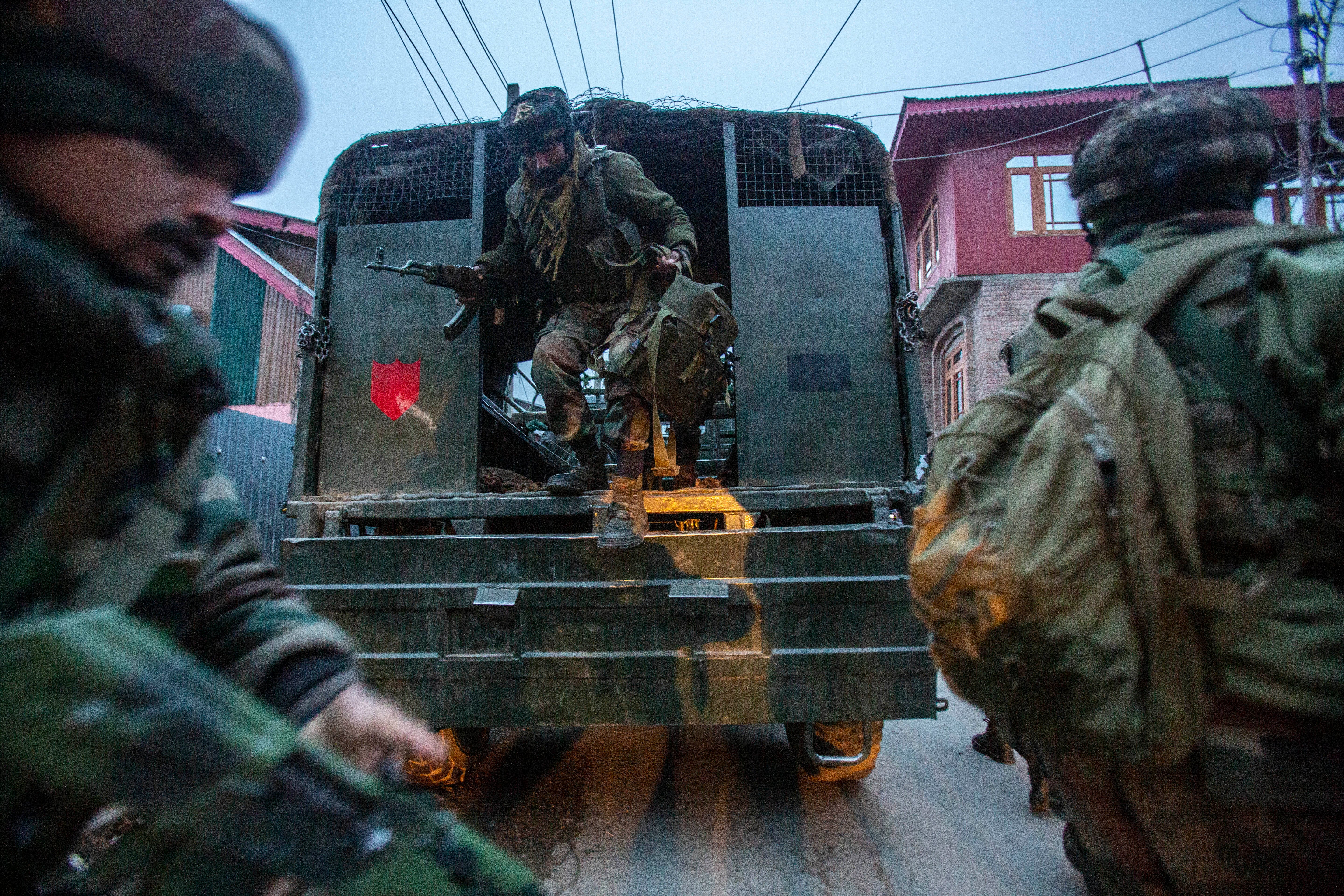Media watchdog asks India to release Kashmiri journalist
The New York-based Committee to Protect Journalists has asked Indian authorities to immediately release a journalist in disputed Kashmir, days after police arrested him for uploading a video clip of a protest against Indian rule

The New York-based Committee to Protect Journalists asked Indian authorities to immediately release a journalist in disputed Kashmir days after police arrested him for uploading a video clip of a protest against Indian rule.
The media watchdog on Saturday said it was “deeply disturbed” by the arrest of Sajad Gul, an independent journalist and media student. It wrote on Twitter it was asking Indian authorities to “drop their investigation related to his journalistic work.”
Indian soldiers picked up Gul from his home in northeastern Shahgund village on Wednesday night and later handed him over to the police, his family said. He had posted a video of family members and relatives protesting the killing of a rebel commander on Monday.
Initially, police said he would be released but on Friday, his family was told that a formal case was opened against Gul on charges of criminal conspiracy and working against national integration. If convicted, he faces life imprisonment or even death penalty.
Journalists have increasingly voiced concerns about harassment and threats by the police that have effectively restricted reporting after India revoked Kashmir’s semi-autonomy and divided the region into two federally governed territories in 2019.
Many journalists have been arrested, beaten, harassed and sometimes investigated under antiterrorism laws.
The Kashmir Press Club, an elected body of journalists in the region, has repeatedly urged the Indian government to allow them to report freely, saying security agencies were using physical attacks, threats and summons to muzzle the press.
India’s decision to strip the region of its special powers in August 2019 brought journalism to a near halt in Kashmir for months. India began implementing a policy in 2020 that gives the government more power to censure independent reporting.
Fearing reprisals from government agencies, most of the local press has wilted under pressure. Journalists have also come under scrutiny through anonymous online threats the government says are linked to rebels fighting against Indian rule.
Kashmir is divided between India and Pakistan and both claim it in full.
Since 1989, a full-blown armed rebellion has raged in Indian-controlled Kashmir seeking a united Kashmir — either under Pakistani rule or independent of both countries. The region is one of the most heavily militarized in the world. Tens of thousands of civilians, rebels and government forces have been killed in the conflict.
Bookmark popover
Removed from bookmarks